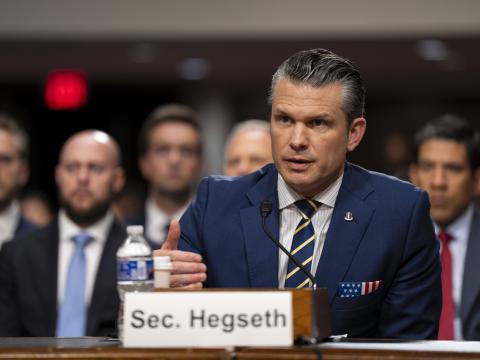Incoming: Keeping the Experts
How can the military avoid cheating itself out of good personnel who leave for greener pastures? In January's Incoming column, Capt. Joseph A. Grace Jr., USN (Ret.) poses this question as he examines the delicate line between being well rounded and being an expert, noting that the military seldom promotes the expert.
In January's Incoming column, Capt. Joseph A. Grace Jr., USN (Ret.) examines the delicate line between being well rounded and being an expert, noting that the military seldom promotes the expert:
We rarely promote deep levels of expertise in almost any area of the service. Most of our talent in information technology, cyber, program management, information assurance and acquisition is home-grown success and is subject to the luck of the draw, the shifting winds of assignments and permanent change of station orders. An officer who specializes in any one of these areas is unlikely to be promoted past O-5. Our senior program managers may have been great pilots, super ship drivers or tremendous tankers, but rarely are they subject matter experts on the project for which they are assigned. We consistently manage large programs with senior leaders who in many cases do not have the required levels of knowledge to be effective. As the chief information officer for Navy Medicine, I relied heavily on the expertise of our staff and the officers who knew everything there was to know about information technology within military health. We relied on the input of doctors and nurses who had strong business skills and knew medicine and their processes. We relied on senior leadership for support. As a reserve line submarine officer with a strong business background in information technology, I may have known business and information technology-but they knew how it applied to the medical field. Without them, we would have failed. Yet their constant concern was that no career path was available to them as information technology experts in the medical world. The same is true in most disciplines within the services. In many cases we do not appreciate nor promote those whose expertise is critical to our success. If we are to continue to be successful as a nation and as a military power, this must change.How can the military avoid cheating itself out of good personnel who leave for greener pastures?




Comment
I agree! Having been a
Comments